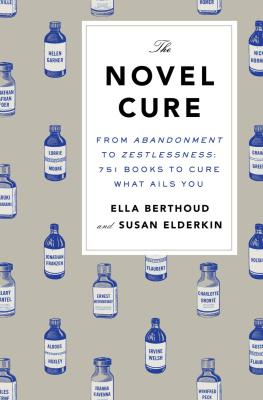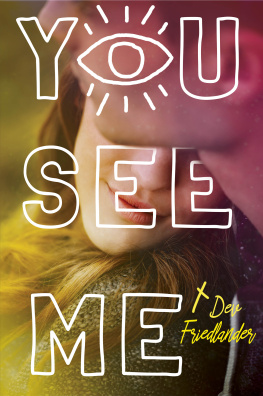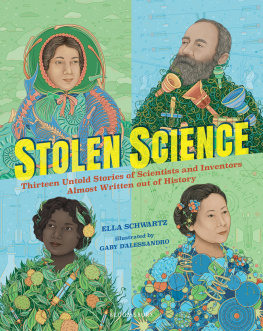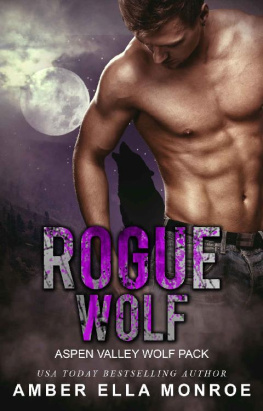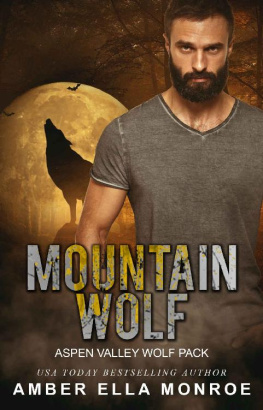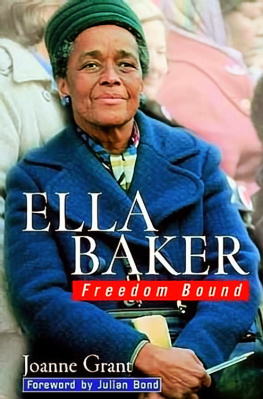Ella Berthoud - 30-Second Literature
Here you can read online Ella Berthoud - 30-Second Literature full text of the book (entire story) in english for free. Download pdf and epub, get meaning, cover and reviews about this ebook. year: 2020, publisher: Ivy Press, genre: Detective and thriller. Description of the work, (preface) as well as reviews are available. Best literature library LitArk.com created for fans of good reading and offers a wide selection of genres:
Romance novel
Science fiction
Adventure
Detective
Science
History
Home and family
Prose
Art
Politics
Computer
Non-fiction
Religion
Business
Children
Humor
Choose a favorite category and find really read worthwhile books. Enjoy immersion in the world of imagination, feel the emotions of the characters or learn something new for yourself, make an fascinating discovery.

- Book:30-Second Literature
- Author:
- Publisher:Ivy Press
- Genre:
- Year:2020
- Rating:5 / 5
- Favourites:Add to favourites
- Your mark:
- 100
- 1
- 2
- 3
- 4
- 5
30-Second Literature: summary, description and annotation
We offer to read an annotation, description, summary or preface (depends on what the author of the book "30-Second Literature" wrote himself). If you haven't found the necessary information about the book — write in the comments, we will try to find it.
30-Second Literature — read online for free the complete book (whole text) full work
Below is the text of the book, divided by pages. System saving the place of the last page read, allows you to conveniently read the book "30-Second Literature" online for free, without having to search again every time where you left off. Put a bookmark, and you can go to the page where you finished reading at any time.
Font size:
Interval:
Bookmark:
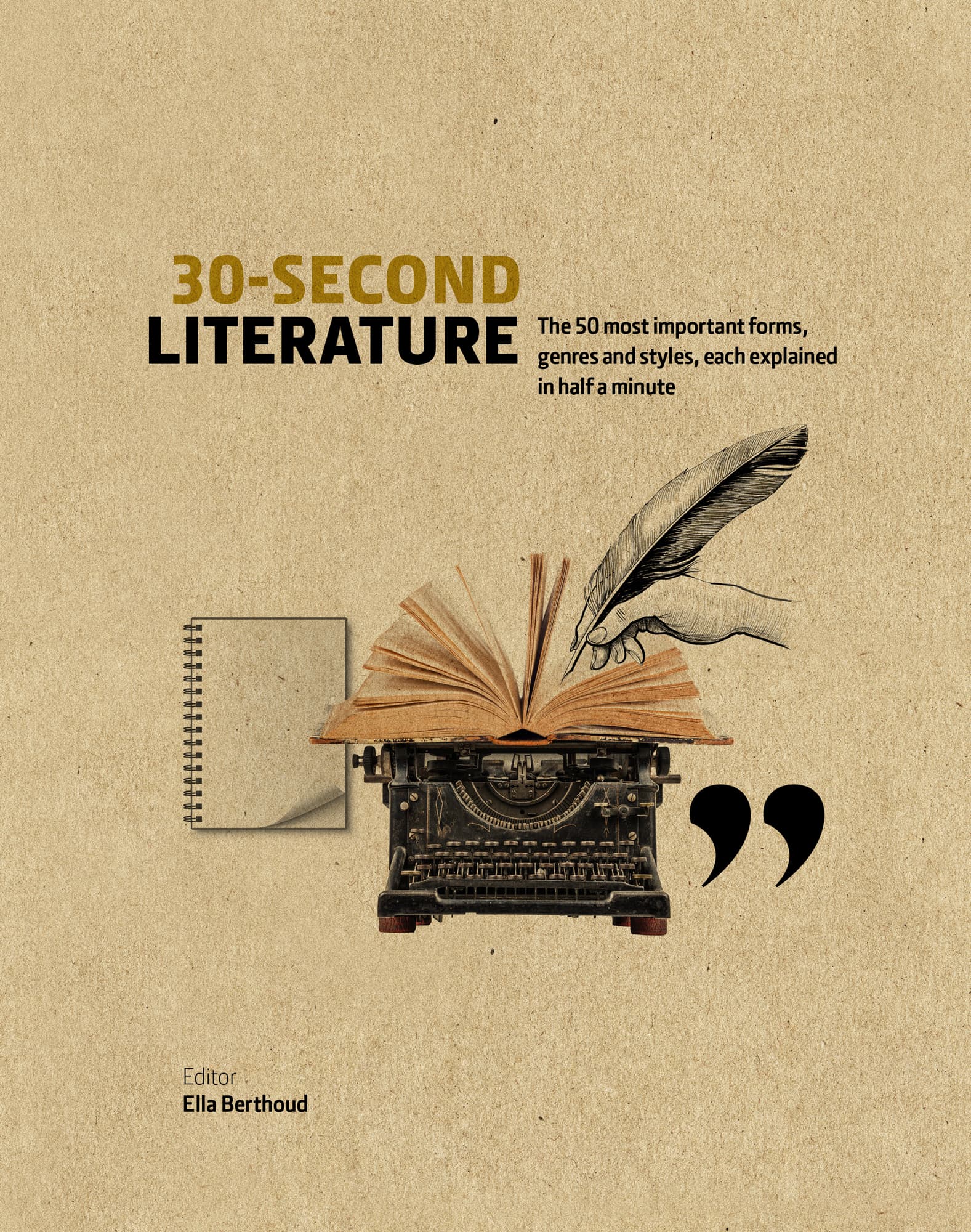

LITERATURE
The 50 most important forms, genres and styles, each explained in half a minute
Editor
Ella Berthoud
Contributors
Naomi Frisby
Lauren de S Naylor
Valerie ORiordan
Charlotte Raby
Lucien Young
Illustrator
Nicky Ackland-Snow

First published in the UK in 2020 by
Ivy Press
An imprint of The Quarto Group
The Old Brewery, 6 Blundell Street
London N7 9BH, United Kingdom
T (0)20 7700 6700
www.QuartoKnows.com

Copyright 2020 Quarto Publishing plc
All rights reserved. No part of this book may be reproduced or transmitted in any form by any means, electronic or mechanical, including photocopying, recording or by any information storage-and-retrieval system, without written permission from the copyright holder.
British Library Cataloguing-in-Publication Data
A catalogue record for this book is available from the British Library.
Digital edition: 978-1-78240-846-8
Hardcover edition: 978-1-78240-844-4
This book was conceived, designed and produced by
Ivy Press
58 West Street, Brighton BN1 2RA, UK
Publisher David Breuer
Editorial Director Tom Kitch
Art Director James Lawrence
Commissioning Editor Kate Shanahan
Design Manager Anna Stevens
Designer Ginny Zeal
Picture Researcher Sharon Dortenzio
Illustrator Nicky Ackland-Snow
Cover images: Shutterstock/Ewa Studio; alexblacksea; Andrej Antic
Ella Berthoud
Literature is imagination in the form of words on paper, or simply memorized and recited. It crosses borders, both physical and mental, allowing us to travel beyond our limitations. A time machine that gives us instant access to the minds of writers from thousands of years ago, it offers multiple alternative presents and numerous possible futures. Through literature, as readers we gain insight into worlds we could never have dreamt of, giving us the opportunity to understand other cultures, other ways of thinking or being or living. We read to find ourselves, and we read to understand others, to gain empathy and to enrich our minds and souls.

Since the birth of the novel we have been able to discover ourselves in books, realizing we are not alone.
What makes written words literature rather than purely a mode of conveying information is not universally agreed shopping lists and instruction manuals are not considered literature, but the borderline between practicality and poetry is hard to define. In this volume, we suggest that literature is anything written or spoken that tells a story, has a narrative, contains poetic or philosophical thought or tries in one way or another to convey a poetic, metaphoric or philosophical truth. We have used the term to apply to spoken or sung texts too, including theatre and performance poetry.
It may seem strange to use the plural first-person pronoun when talking about reading, as literature for the most part is a pursuit we experience alone. Including the most intimate of artistic media, such as the poem and the novel, it still has the power to glue us together as a community of readers, as the growth of reading groups and websites like the hugely popular Goodreads have shown. The miracle of literature is that one imagination is able to speak to another through the conduit of the written word. Each work of literature is pregnant with infinite readings, and comes to readers at unique moments in their individual lives, with the particular experiences, thoughts and beliefs that each of us brings to bear. The words are the vessels that carry the imagination; once carved in stone, then on clay, wood, bamboo; then written on papyrus and tablets, then paper and now on screens. With their ever-evolving symbols and our ever-evolving lives, these words are open to continuous new interpretations.

Illustration has long been a valuable companion of literature and manga is one of its most successful modern manifestations.
This book gives an overview of the entire world of literature (as well as the literature of the world), from its origins even before the birth of writing, to the literature of the present and the future, too though regrettably (but inevitably in a book that allows for 50 topics and no more) some forms have had to be omitted. Essays for instance do not appear; childrens literature, travel literature and erotica are some of the forms that will have to be left for others to consider. Some literary movements have also been omitted for want of space, with Dadaism, Oulipo, The Black Arts Movement, Flarf and Alt Lit among many other topics we would like to have explored. Throughout this book, it has been our aim to include examples from as many literary cultures as we can, sometimes eschewing the most famous examples from the established literary canon.
Literature today is at an exciting point in history, accessible almost instantly to everyone, anywhere, and in the case of some books available in almost every known language. In an age where long form writing is perhaps under threat from the immediate gratification of scattergun bursts of texts, snaps and tweets, this book aims to celebrate the deep satisfaction literature can offer in all its myriad, protean forms.
Each topic is broken down to make it accessible. The 30-second thesis gives the main description, while the 3-second plot summarizes the topic at a glance. If you would like to find out more, the 3-minute theme examines an intriguing aspect of the topic and expands on it. The 3-second bibliographies list interesting texts of the period, genre or device for you to explore further.
The History of Literature gives an overview of literary endeavour through the ages. Then The Novel looks at one of the most popular forms of literature, which is considered through its many genres. Literary Prose examines short stories, autobiographies and memoirs, diaries, philosophical and religious works. Poetry explores the longest epic poems to the tiniest haikus. Drama surveys the uses we have made of the spoken word over millennia, using actors to explore the range of the human condition through plays that show us the extremes of fate. Literary Devices
Font size:
Interval:
Bookmark:
Similar books «30-Second Literature»
Look at similar books to 30-Second Literature. We have selected literature similar in name and meaning in the hope of providing readers with more options to find new, interesting, not yet read works.
Discussion, reviews of the book 30-Second Literature and just readers' own opinions. Leave your comments, write what you think about the work, its meaning or the main characters. Specify what exactly you liked and what you didn't like, and why you think so.

